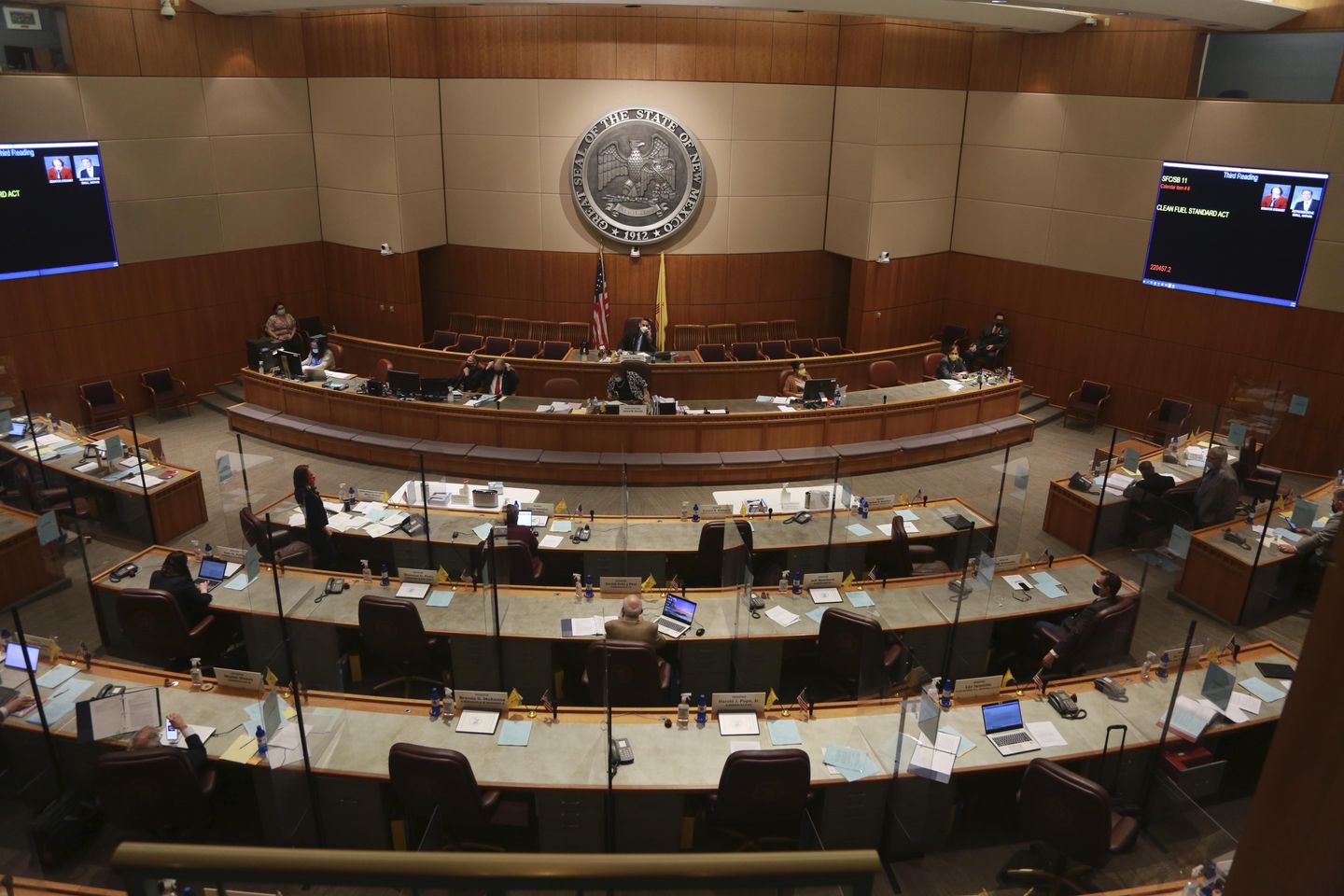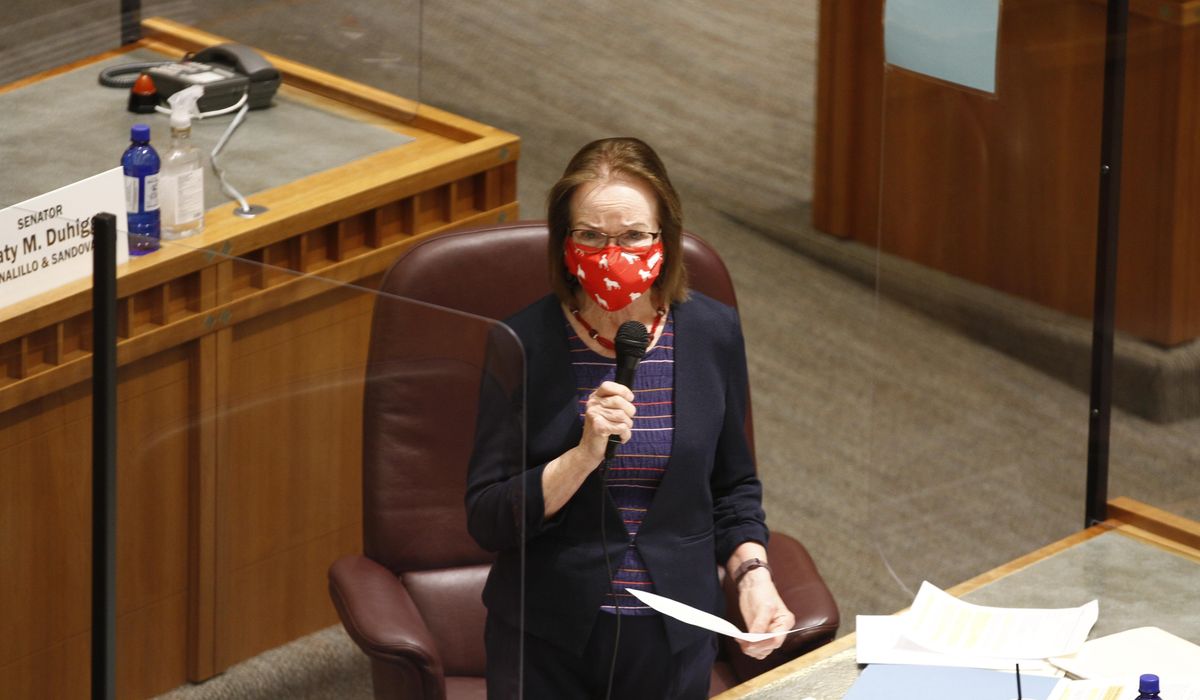[ad_1]

SANTA FE, N.M. (AP) – Legislation to legalize cannabis in New Mexico advanced Thursday toward a decisive Senate floor vote under a framework that emphasizes government oversight of pricing and supplies and social services for communities where the criminalization of pot led to aggressive policing.
A Senate judiciary committee advanced a Democrat-sponsored bill on a 5-4 vote amid stinging criticism from Democratic Sen. Joseph Cervantes, who fears the regulatory framework will create a powerful, government-protected monopoly.
The state Senate has until noon on Saturday to send a legalization bill to Democratic Gov. Michelle Lujan Grisham, who says the industry would spur jobs and boost state government income.
The Senate panel discarded a rival legalization proposal from Republican state Sen. Cliff Pirtle of Roswell that stressed low taxes as a framework to stamp out the illicit marijuana market.
Legalization advocates focused instead on revisions to a House-approved bill from Democratic state Reps. Javier Martínez of Albuquerque and Andrea Romero of Santa Fe that emphasizes support for communities adversely affected by marijuana criminalization in the past.
The House-backed bill provides some automated pardon and expungement procedures for past marijuana possession charges and convictions. It also would set aside public funds in the future to to underwrite vocation training for cannabis workers, education to prevent substance abuse, and an array of social services in communities that have experienced tough policing against illicit drugs.
Newly adopted amendments to the bill would initiate a study of cannabis production levels in other states and monitor the New Mexico market to ensure “market equilibrium.” State regulators at the state Regulation and Licensing Department could put a freeze on cannabis production levels or new licenses.
Cervantes warned that the state may inadvertently be creating a tightly regulated cartel of marijuana producers, much like the liquor license system that lawmakers reformed this year to spur new opportunities in the hospitality industry.
“In other words, the government is going to decide how much of a shortage, how much of a demand and whether the price is right or not. And based on achieving some kind of market equilibrium, will decide whether to allow more plants or fewer plants to be grown and more licensed or fewer licensed to be issued,” Cervantes said.
Proponents of the current bill say it would foster competition and that market controls would expire after three years, but Cervantes voiced skepticism. Several incumbent medical marijuana producers have lobbied for an extension of state production caps that some say inflate prices.
“Those that are able to control the market for those first three years, as you’re describing, will get very used to the idea of being able to control that market,” Cervantes said. “I’m sure the big boys have written this bill. I wasn’t born yesterday.”
The bill awaiting a Senate vote is designed to ensure opportunities for small craft-marijuana producers under a micro-license system that combines cultivation, manufacturing of pot products, sales and lounges for social consumption of weed.
It calls for a combined state and local excise tax on sales of 12%, on top of existing gross receipts taxes on sales that range from roughly 5% to 9% by location. Medical marijuana would become tax-free, with provisions for subsidized cannabis for poor patients.
Debate on the bill concluded at about 1:30 a.m. Thursday, as exhausted legislators postponed additional amendments for Senate floor deliberations.
State Sen. Mimi Stewart of Albuquerque voted to advance the bill, but wondered aloud how regulators would determine appropriate production levels as marijuana tourism draws in visitors from neighboring Texas, where nonmedical marijuana remains illegal.
Small craft pot operations would get a head start in the industry in July. The first licenses for full-scale marijuana businesses would be issued on March 1, 2022.
[ad_2]
